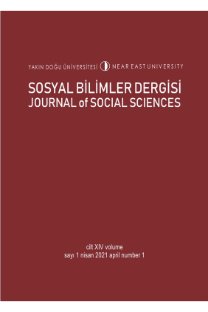Köy enstitüsü mezunlarının halkçılık anlayşının eleştirel bir incelemesi
Bu çalışma, halkçılık ideolojisinin anahtar kavramı olan “halk” kavramı üzerine odaklanmakta, söz konusu kavramın Köy Enstitüsü mezunlarının halkçı söylemindeki farklı ve çelişkili anlam ve kullanımlarını, mezunlarla yapılan derinlemesine görüşmelere referansla ele almaktadır. Çalışmanın amacı, bu çelişkili “halk” kavramsallaştırmasının Enstitülülerin halkçı söylemindeki elitist unsurları nasıl açığa çıkardığını ortaya koymaktır. Bu doğrultuda, Enstitülülerin “halk”ı bir yandan ulusal değerlerin kaynağı olarak yüceltirken, öte yandan “ilkel”, “cahil”, “geri”, “kaderci” olarak nitelendirdiklerine ve onu eğitip aydınlatma gerekliliğinin altını çizdiklerine işaret edilmekte; tam da bu noktada, Köy Enstitülülerin halkçı söyleminin “elitist” bir nitelik kazandığı öne sürülmektedir. Ancak burada karşımıza çıkan elitist söylemin “halk”ı kendi kendini yönetme kapasitesinden bütünüyle yoksun gören ve dolayısıyla elitler tarafından yönetilmesi gerektiğini savunan elitist yaklaşımlardan farklı olduğu iddia edilmektedir.
A critical analysis of the populist discourse of the graduates of the village instutes
This study focuses on the concept of the “people” which is the key concept of the populist ideology, and examines its different and contradictory meanings and usages with reference to the in-depth interviews conducted with the graduates of the Village Institutes. The aim of the study is to display how this contradictory conceptualization of the “people” reveals the elitist elements within the populist discourse of the graduates of the Village Institutes. Accordingly, the study indicates that while exalting the “people” as a source of national merits, the graduates consider them as “primitive”, “ignorant”, “backward”, “fatalist” and emphasize the need for educating and enlightening them. It is argued that at this point the “elitist” character of the populist discourse of the graduates of the Village Institutes arises. However, it is also argued that this elitist discourse differs from those who consider the “people” incapable of self-government and in need of government by elites.
___
- ISSN: 1986-1303
- Yayın Aralığı: Yılda 2 Sayı
- Başlangıç: 2008
- Yayıncı: Yakın Doğu Üniversitesi
Sayıdaki Diğer Makaleler
Köy enstitüsü mezunlarının halkçılık anlayşının eleştirel bir incelemesi
State capitalism and Russia’s energy policy in northeast Asia
Toplamsal ifadeler içeren problemlerin çözümündeki tersine çevirme prensibi uygulamaları
Doğu-batı söylemleri çerçevesinde Türkiye – Avrupa/avrupa birliği algıla(mala)rı
State centric Russian energy policy and rapprochement in russia-Turkey relations
The development of nationalism in india
Ideological process of shopping malls within the framework of ‘glocalization’
